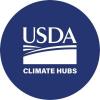Understanding Social Networks to Facilitate Resilience
Interpersonal connections are important for effective response to natural hazards such as wildfire and flooding. In this project, Co-PI Corrie Knapp and graduate student Alec Wallen are exploring how actors are connected and interact with one another for wildfire response, as well as how those connections could be built to improve responsiveness. Knapp and Wallen also conducted community outreach, resulting in identification of a key partner with the Medicine Bow-Routt US Forest Service Office that is interested in collaborating on this project. They plan to conduct interviews with key preparedness actors to understand how they work together currently and host a workshop to facilitate relationship and network building in the future. Based on feedback from their partners, Knapp and Wallen are also interested in exploring the effectiveness of fire communications based on the Mullen Fire, which burned over 100,000 acres west of Laramie, WY in September 2020.
In Phase II (2024-2026), if the participating community is interested in considering assessing and modifying networks to build resilience to future hazards, then we will assist with facilitation of 1-2 workshop(s) that could provide real-world models of co-produced and proactive network building. One tangible possibility, with groundwork laid by the University of Wyoming Extension Service and Northern Plains Climate Hub, is for fire preparedness across public and private land ownership in communities near Pinedale, WY. There has been growing interest in proactive planning that might better link decision-makers and service-providers, and discussion of policies or programs that could assist in increasing community preparedness. Other possibilities for co-produced workshops would be to build off prior efforts related to water planning, flood mitigation, or wildlife adaptation planning in Wyoming. These workshops will aim to bring together stakeholders from a range of sectors to share current priorities, perspectives, and needs in hazards planning, identify overlaps in prioritization, efforts, and/or needs, and pinpoint gaps in existing networks where new stakeholders can be incorporated into joint efforts. Ultimately, this project serves the dual purpose of supporting WWA in gaining an improved understanding of stakeholder networks and future strategies for engagement and resilience building, and facilitating inter- and intra-network collaboration amongst stakeholder groups to strengthen future hazards response.

